RapiTime, the on-target timing analysis, verification and optimization tool for critical real-time embedded systems, was recently used to analyse the worst-case execution time (WCET) of code on an experimental micro-satellite. UPMSat-2 features the Attitude Determination and Control System (ADCS), a subsystem which computes the orientation (attitude) of the satellite with respect to the Earth, and takes corrective actions in order to keep it within specified values. Software standards for on-board spacecraft software require schedulability analysis for the verification process. This analysis requires the WCET of each task to be known. RapiTime analyses the structure of source code and adds instrumentation points at relevant places. These execution traces are then collected to generate time measurement statistics, including the WCET measurements required for schedulability analysis. Partly funded by the Spanish Ministry of Economy and Competitiveness (MINECO), UPMSat-2 is scheduled to be launched in 2013. More information and results are available at http://www.rapitasystems.com/publications.html (Analysis of WCET in an experimental satellite software development). Visit Rapita Systems and the Solar Orbiter for more details of our recent space work.

Industry leading verification tools & services
Rapita Verification Suite (RVS)
RapiTest - Unit/system testing RapiCover - Structural coverage analysis RapiTime - Timing analysis (inc. WCET) RapiTask - Scheduling visualization RapiCoverZero - Zero footprint coverage analysis RapiTimeZero - Zero footprint timing analysis RapiTaskZero - Zero footprint scheduling analysis RapiCouplingPreview - DCCC analysis
Latest from Rapita HQ
Technical resources for industry professionals
Discover Rapita
Who we are
US office
+1 248-957-9801info@rapitasystems.com
Rapita Systems, Inc.
41131 Vincenti Ct.
Novi
MI 48375
USA
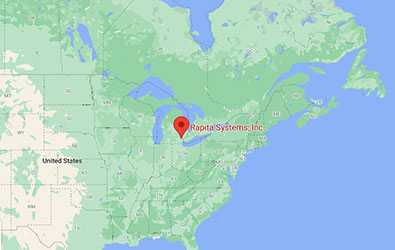
UK office
+44 (0)1904 413945info@rapitasystems.com
Rapita Systems Ltd.
Atlas House
Osbaldwick Link Road
York, YO10 3JB
UK
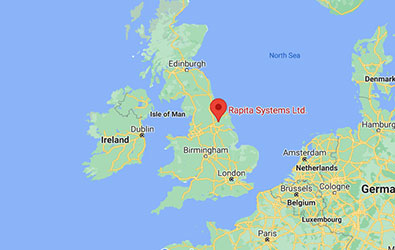
Spain office
+34 93 351 02 05info@rapitasystems.com
Rapita Systems S.L.
Parc UPC, Edificio K2M
c/ Jordi Girona, 1-3
Barcelona 08034
Spain
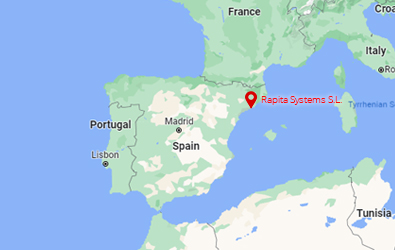
Working at Rapita
Careers
- Solutions
- Latest
- Company
- Discover
- Multicore Timing Analysis
- Embedded Software Testing Tools
- Worst Case Execution Time
- WCET Tools
- Code coverage for Ada, C & C++
- MC/DC Coverage
- Verifying additional code for DO-178C
- Timing analysis (WCET) & Code coverage for MATLAB® Simulink®
- Data Coupling & Control Coupling
- Aerospace Software Testing
- Automotive Software Testing
- Certifying eVTOL
- DO-178C
- AC 20-193 and AMC 20-193
- ISO 26262
- What is CAST-32A?
All materials © Rapita Systems Ltd. 2025 - All rights reserved | Privacy information | Trademark notice Subscribe to our newsletter

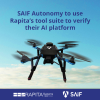 SAIF Autonomy to use RVS to verify their groundbreaking AI platform
SAIF Autonomy to use RVS to verify their groundbreaking AI platform
 Hybrid electric pioneers, Ascendance, join Rapita Systems Trailblazer Partnership Program
Hybrid electric pioneers, Ascendance, join Rapita Systems Trailblazer Partnership Program
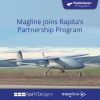 Magline joins Rapita Trailblazer Partnership Program to support DO-178 Certification
Magline joins Rapita Trailblazer Partnership Program to support DO-178 Certification
 How to certify multicore processors - what is everyone asking?
How to certify multicore processors - what is everyone asking?
 Data Coupling Basics in DO-178C
Data Coupling Basics in DO-178C
 Control Coupling Basics in DO-178C
Control Coupling Basics in DO-178C
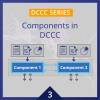 Components in Data Coupling and Control Coupling
Components in Data Coupling and Control Coupling
 DO-278A Guidance: Introduction to RTCA DO-278 approval
DO-278A Guidance: Introduction to RTCA DO-278 approval
 ISO 26262
ISO 26262
 Data Coupling & Control Coupling
Data Coupling & Control Coupling
 Verifying additional code for DO-178C
Verifying additional code for DO-178C
 DO-178C Multicore In-person Training (Bristol)
DO-178C Multicore In-person Training (Bristol)
 XPONENTIAL 2025
XPONENTIAL 2025
 Avionics and Testing Innovations 2025
Avionics and Testing Innovations 2025
 DO-178C Multicore In-person Training (Fort Worth, TX)
DO-178C Multicore In-person Training (Fort Worth, TX)









